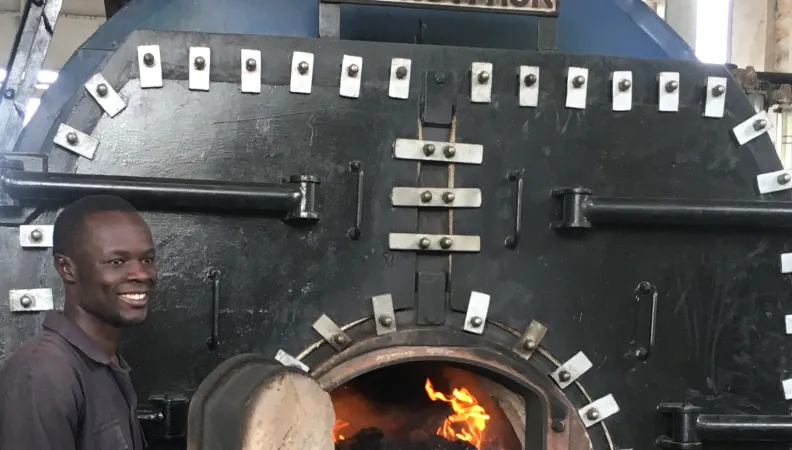Share the page
Supporting investments in renewable energy and energy efficiency
Project


-
Project start date
-
-
AFD financing amount
-
€ 30000000
-
Country and region
-
Location
-
Nairobi
-
Type of financing
-
Partners
-
Beneficiaries
-
Cooperative Bank of Kenya
This project promotes Kenyan growth in low carbon through the development of renewable energy and the promotion of energy efficiency measures in the industry.
Context
The Kenyan energy mix is characterized by massive use of biomass in its least efficient forms in terms of energy efficiency. More than 70% of the country's primary energy comes from biomass, of which firewood accounts for the largest part. The use of this resource, used by all Kenyan households and some agribusiness industries, is causing a worrying deforestation phenomenon which the Kenyan Government is struggling to control. The conservation of Kenya's natural heritage therefore requires other types of energy in place of this primary energy source. Such a context encourages active support for Kenya's transition to renewable energy by supporting public policies and promoting private investment in various forms. Through a local partner bank, the project financed small to medium sized renewable energy generation units (between 0.5 and 8 MW for a maximum investment of € 10 million), built by Kenyan agro-industrial enterprises and independent power producers (IPP). It has also enabled the establishment of energy-efficient industrial processes (EE) in the most energy-intensive agro-industries. The project also aims to gradually bring the commercial banking sector towards the financing of innovative projects of this type but whose technical risks are perceived as high and poorly controlled by local banks as well as by potential investors. In order to overcome this obstacle, the credit line includes a two-year technical assistance facility based in Nairobi, consisting of EE and RE expertise.
Description
The specific objectives of the project are: to develop the renewable energy as part of Kenya's energy mix by promoting the use of agro-industrial energy for these forms of energy; reduce the country's energy intensity by stimulating investment from agribusiness and the hotel sector in energy efficiency projects; to encourage local banks to gradually diversify their credit activity towards financing this type of project. The project is composed of two complementary components: Component 1: credit line has been opened to Nairobi's banks to finance renewable energy development projects intended either for self-consumption or for connection to the electricity grid, or including a significant energy efficiency component in the agribusiness and hotel sectors. Cooperative Bank was the first bank in the region to sign a loan agreement with AFD. Component 2: Technical Assistance (TA) specialized in the conduct of renewable energy and energy efficiency projects. This component is intended to support investors and banks in a new approach regarding which they do not master the technologies used.
Impacts
The development of renewable energies is essential for improving the country's energy autonomy and controlling the cost and supply of electricity for economic stakeholders. Kenyan economy is largely dependent on energy-intensive industries. However, frequent cuts in power supply and frequent low voltage affect the quality of finished products and reduce the volumes produced, resulting in the deterioration of their competitiveness and the deficit in Kenya's export market shares; especially where it concerns tea and coffee. The project also aims to foster the development of local technical skills for the development of EE/RE projects.


